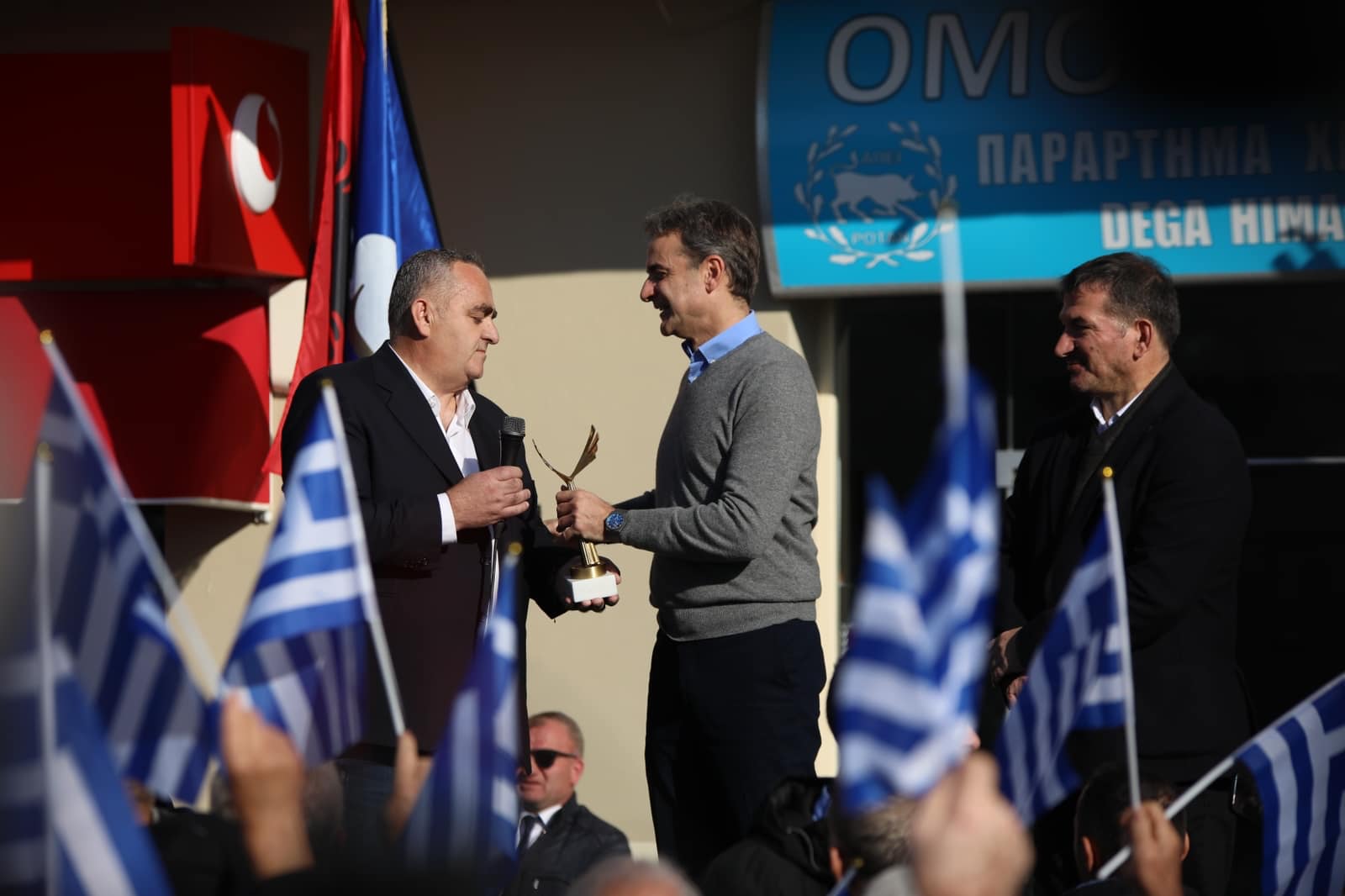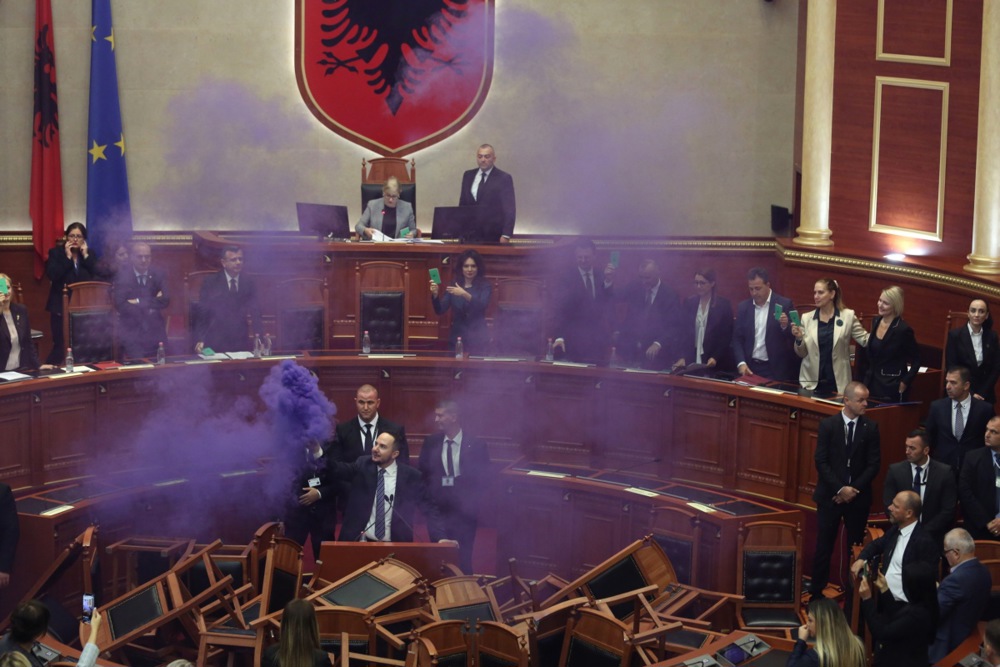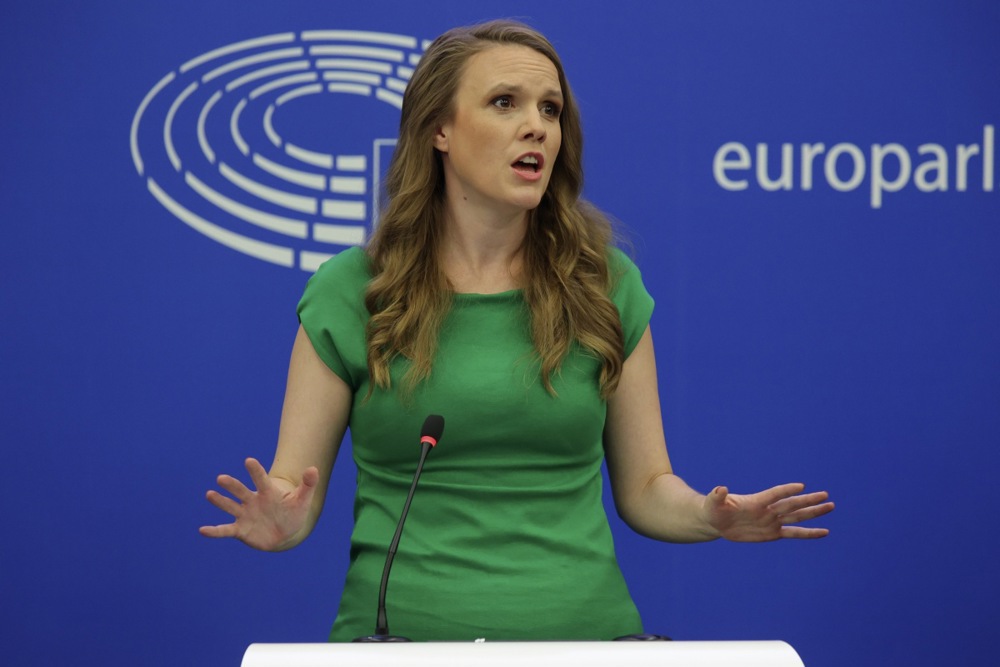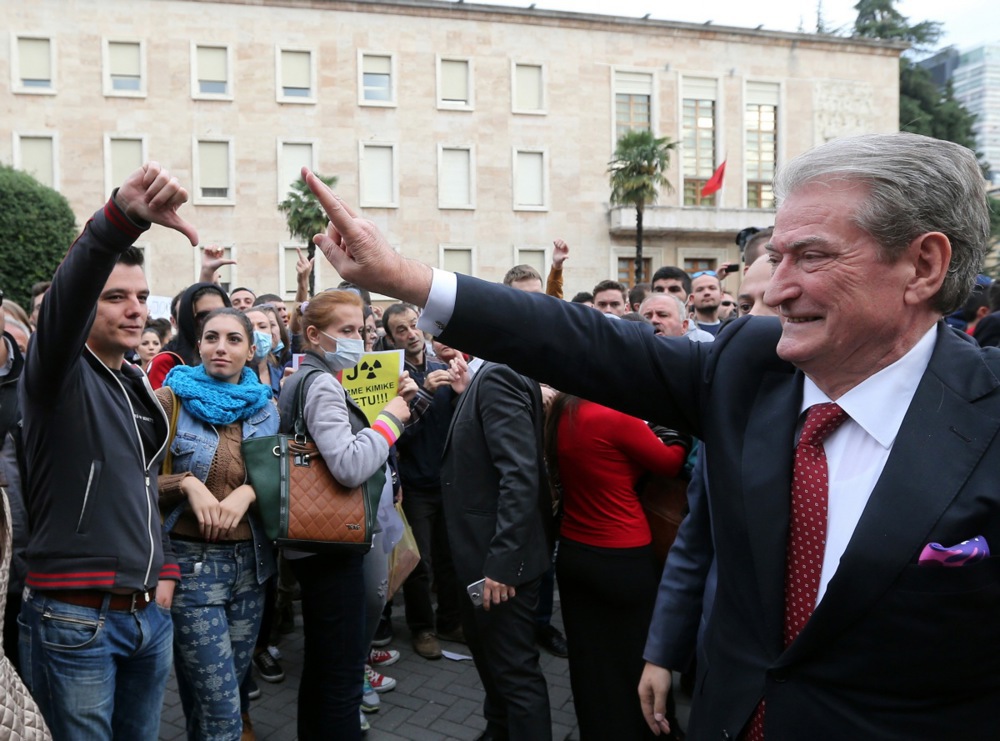The ongoing controversy between Greece and Albania has reached the European Parliament with the arrest by Albanian authorities of a mayor belonging to the nation’s Greek minority.
The arrest of the Mayor of Himare Fredi Beleri came up at a debate on the evening of January 24, following a Foreign Affairs Committee Parliament meeting, as MEPs discussed Albania’s prospects of it joining the European Union.
“We only want justice to be done,” Suela Janina, the European Union’s Albanian Ambassador, told Brussels Signal. Janina insisted that the Albanian Government wanted a fair trial for Beleri.
“We will look at the facts and we hope that the results of the case are respected both within Albania and outside Albania in Europe.”
Beleri was arrested on charges of allegedly bribing voters in a local election. Many Greek critics claimed the move was an act of discrimination regarding Albania’s ethnic Greek minority.
The funeral of the grandmother of elected ethnic Greek mayor Fredi Beleri in Himarë, Albania, has intensified the strained relations between Greece and Albania. https://t.co/dgWw3X7D05
— Brussels Signal (@brusselssignal) January 8, 2024
Albanian opposition members claimed it was part of a wider clampdown by Prime Minister Edi Rama’s Socialist Government on them.
The country has seen intense polarisation between the Conservative Democratic Party in opposition and the governing Socialist Party.
Divisions have been stoked recently by the arrest of former-prime minister and Democratic Party leader Sali Berisha on alleged corruption charges.
Albania’s former prime minister Sali Berisha has sworn revenge on sitting Prime Minister Edi Rama over his house arrest, which began on December 30. https://t.co/HOct1tqH0Q
— Brussels Signal (@brusselssignal) January 4, 2024
Janina’s comments came after MEPs gave mixed opinions regarding Albania.
Portuguese MEP Isabel Santos, the Parliament’s rapporteur on Albania, said the Balkan nation had “been exemplary in its accession procedure”.
The country had made progress in fighting crime and corruption, and in aligning itself with the EU’s foreign policy, she said.
Santos did allude to recent tensions, not just over Beleri but also relating to Berisha being placed under house arrest.
“[These] incidents … deal a blow to Albania’s accession, we mustn’t be afraid to say it,” Santos said.
Anna-Michelle Assimakopoulou, an MEP for Greece’s governing centre-right New Democracy party, was critical of the Beleri case.
Claiming his hearing had been delayed and that he had been refused to permission to leave prison to speak in his capacity as mayor, Assimakopoulou said the issue was bigger than just a two-country squabble.
“It’s a case of respecting human rights, it’s not some bilateral issue between Albania and Greece,” she said.
“I’m not saying this because I’m a Greek MEP. No, this a European affair, a European issue … which weighs heavily on the process of accession to the European Union for the country.”
In the wake of the Russian invasion of Ukraine, the EU is speeding up enlargement as Brussels wishes to shield neighbouring countries from Russian and Chinese influence. Other countries such as Moldova, Georgia and Ukraine seek the EU’s protection from Russia.
Still, the Beleri case could spell trouble for Albania joining the bloc, as Greece says it may veto the country’s EU membership if Albania’s Greek minority are “mistreated”.
Tensions are rising between Albania and Greece after Albanian Prime Minister Edi Rama was not invited to a Balkan summit of numerous leaders hosted by Greece. https://t.co/JQZqyuI9Pp
— Brussels Signal (@brusselssignal) August 22, 2023





